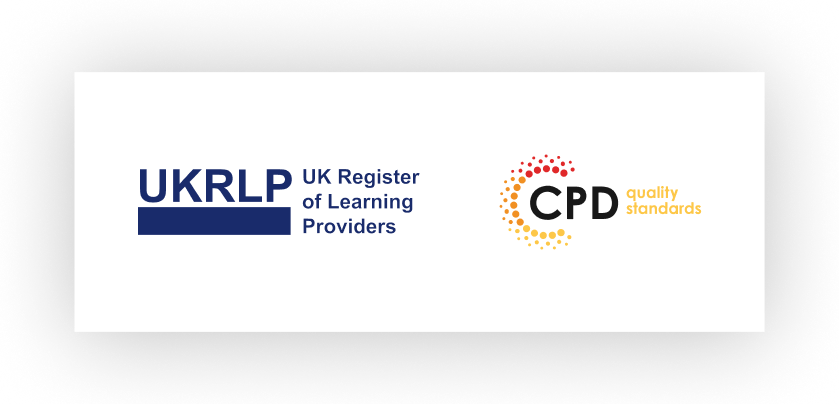

If you’re committed to professional or personal growth, lifelong learning is vital. Even after you have attained a major career height and you are a top ghost writer, the best HR manager, etc. learning should continue. The idea of lifelong learning is to achieve all your goals and be the best version of yourself. Thus, lifelong learning is the habit of staying educated even after you’ve left the traditional education setting.
More so, lifelong learning has to be voluntary and continuous. It is the pursuit of knowledge beyond what school taught you. With how fast the world is evolving, there are advantage ins to learning lifelong. Therefore, keep reading this article to discover the nuances of lifelong learning, including why it is so important.
Table of Contents
Lifelong Learning Definition: What Is the Meaning of Lifelong Learning?
Lifelong learning is the self-motivated and ongoing acquisition of skills, capabilities, and knowledge.
Someone who invests in continuous informal learning will master their skills. They will also become better equipped to thrive and less likely to become irrelevant. Meanwhile, learning lifelong doesn’t mean you always have to register for courses. It can take many forms, including but not limited to formal education.
It can be by informal learning, online courses, training programs, seminars, and workshops. Continuous learning is self-initiated training outside a formal educational institute like a school. The essence of learning is to get knowledge and expand your skills throughout your life.
What Is the Essence of Lifelong Learning?
You may wonder why continuous learning is so important. After all, you already have a degree that qualifies you for a well-paying job, right? With AI and automation reshaping industries, some new roles exist, and others are becoming obsolete. With informal learning, you can equip yourself with skills to fill these new roles.
Moreover, lifelong learning can help you achieve personal satisfaction and fulfillment. The satisfaction can come from a professional ambition or individual passions. Humans have a drive to explore, learn, and grow in something they are passionate about. In addition, lifelong learning encourages you to improve your sense of self-worth. It helps you focus on the ideas and goals that inspire you, thus improving your quality of life.
Another case study of lifelong learning is Elon Musk, who has expanded and keeps expanding his knowledge across various fields through self-taught learning. Starting as a software engineer, he has ventured into aerospace, demonstrating the power of curiosity and adaptability. Musk’s transition from software engineering to the aerospace industry is a typical example of lifelong learning. He demonstrates the numerous benefits of learning life long.
What Are the Features of a Lifelong Learning Commitment?
Lifelong learning is more than a voluntary task. It is a mindset and commitment to personal growth. It is a desire to access information that extends outside the scope of formal education.
Let’s see some of the features of lifelong training and what it means to be a lifelong learner:
● It Is Ongoing
Lifelong learning is a continual process involving consistently acquiring knowledge and skills. It continues for as long as you are alive and helps you stay relevant and sought-after in your chosen field. The continuity of learning is essential because this is a fast-paced world. Today’s knowledge can become outdated faster than anything.
Being a lifelong learner is knowing that learning is a journey, not a destination. It is a journey where you’re always seeking to grow and adapt.
● It Can Take Many Forms
Continuous learning is flexible in that you can get the knowledge you seek through formal and informal means. That is, lifelong learning can be through structured courses and programs. That may involve enrolling in digital courses or attending workshops.
Also, it can happen through informal means like traveling, volunteering, or reading. Discussions with peers and hands-on experiences are other learning options, too. In addition, the flexibility of lifelong learning helps in tailoring your learning experiences.
● It Is Voluntary
Learning life long has to be by choice, stemming from deep-seated intrinsic motivation. It means you are in control of your learning journey. You are to continuously seek out relevant learning opportunities, among other things. In addition, ongoing learning helps in developing vital skills, such as time management and self-discipline.
● It allows for Diversity
Lifelong learning does not have to be limited to professional development alone. It can also include acquiring new hobbies or learning a new language. Whether you choose to master a craft or understand personal finance, it is up to you to decide. The cognitive flexibility to learn anything makes you more well-rounded and creative.
Pros and Cons of Lifelong Learning in Education
Everything has an upside and a downside; college, for example, can be frustrating. But we know the benefits of having a college degree outweigh the stress of getting it. So, despite all the great things about lifelong training, there are also downsides to it. Let’s see some of these pros and cons:
The Pros: Why Is Lifelong Learning Important
- Lifelong training helps you stay current in your field of specialization. That way, you can easily adapt to changing trends in job markets.
- You develop new skills and expertise, improving your value at work in society.
- It equips you with knowledge and skills that’ll help you achieve your career goals.
- With different skills acquired, you can have access to more job opportunities. It can also help to boost your credibility and result in higher earning potential.
- Get self-motivated and, thus, more satisfied in what you do
The Cons: What Are the Downsides of Lifelong Learning?
- It takes time, and you may have to invest a significant amount of money
- Balancing learning lifelong with other responsibilities can be challenging
- You may experience some hiccups finding learning opportunities that interest you
- There may be days you don’t feel motivated or focused on your learning goals
The Top Benefits of Lifelong Learning
When we talk about the benefits of lifelong learning, think about the benefits of having an education in the first place. Now, view those benefits through a magnifying lens; that’s precisely how beneficial continuous learning is. This is no exaggeration; committing to constant learning comes with more profound benefits that exceed mere professional development.
That said, here are some of the interesting benefits of learning lifelong and constantly developing oneself:
1. Personal Development
Continuous learning helps to foster self-awareness and personal growth for individuals. The more you learn, the more you want to leave your comfort zone. When you commit to learning, your perspectives become broader. You are also able to confront your assumptions.
Essentially, you become more self-confident, derive life satisfaction, and your emotional intelligence improves. As you continue to evolve and explore the world around you more, you will acquire a greater sense of purpose.
2. Adaptability
The world in which we live is such that things can become obsolete within months. New technologies are rolling out faster than light, and societal shifts are rapidly occurring. Learning lifelong helps you keep up with the constantly evolving world, equipping you to navigate and adapt to these changes. Meanwhile, this isn’t just professional adaptability; it extends to every aspect of your life.
3. Healthier Social Relationships
Whether you take the formal or informal route to lifelong learning, you will meet and learn how to connect with people. Interacting with different kinds of people from other cultures helps to foster empathy. It also improves cultural awareness, which enhances social interactions.
As a continuous learner, you get to build diverse networks of individuals with like-minded goals and purposes. That way, you can form meaningful partnerships and mentorship and build great relationships. Also, you come up with innovations that provide a sense of community for others.
4. Advancement in Career
To excel in your chosen career, you must have a growth mindset and willingness to always learn. You cannot expect a promotion in your field when you still have only the skills that got you the job. You need to stay current with industry trends and skills to improve your employability and create new opportunities.
Also, a lifelong learner is a valuable asset to their organization and team. They are always able to show their versatility and ability to innovate.
5. Improved Cognitive Health
Scientists say the more you learn, the better you can maintain your cognitive function. In turn, it reduces the risks of age-related cognitive diseases like Alzheimer’s. Learning new things challenges your brain in novel ways, essentially helping it to form new neural connections.
Furthermore, lifelong learning helps to keep your mind sharp and improves your memory. It also enhances problem-solving abilities and boosts the brain’s processing speeds.
6. Quality of Life Improved
Lifelong learning has benefits that you only see over time, such as an improvement in your quality of life. The more knowledge you get, the more capable you will feel when you face life’s challenges. It can contribute to better health since you are now informed about health and wellness.
Also, there is a sense of accomplishment that comes with learning something new. It boosts your satisfaction, contentment, and happiness.
Lifelong Learning: Approaches and Tips to Get Started
Lifelong learning doesn’t have to be boring and concentrated; it can be a fun way to spend your (free) time. If, for example, you’re doing something you don’t really enjoy doing and are only in it for the remuneration. Then, you can see lifelong training as a chance to do something you actually love. It can range from trying new hobbies to transitioning to a new career.
Let’s look at the different ways you can start your continuous learning streak and tips to get started.
Approaches to Continuous Learning
There are different ways you can learn new things and acquire new skills without getting a formal education. Here are some of those methods for lifelong training whenever you are ready:
● Educational Resources
The internet is replete with educational resources on anything and everything, and you may not even have to pay a dime. Whether it is workshops, library resources, or online courses, work with what works for you.
● Internships
Continuous learning in an informal way can be by volunteering or applying for internships to get hands-on experience. You can get started on this journey by looking for job shadowing or opportunities that let you explore different career paths.
● Self-Directed Learning
You can engage in continuous learning through self-directed learning from books or articles. Also, consider following thought leaders on social media or experimenting with new approaches.
● Mentorship
If you want more accountability and tailored tutoring, you can seek mentorship. It is essential you choose someone who is a more experienced professional than yourself. It doesn’t even have to be in the field you are already in; if it interests you, go for it!
Tips to Encourage Organizational Lifelong Learning
Lifelong training, though a known concept, is yet to be fully applied in many organizations’ day-to-day operations. If you’re looking for how to foster lifelong learning in your organization, here are some strategies to put in place:
- Create learning opportunities that speak to your employees’ personal preferences. With this, you can keep them engaged and motivated with what they enjoy.
- Make it a collaborative opportunity for solving complex challenges in an exciting way. That way, they’ll have the chance to share their knowledge with one another.
- Encourage your workers to set lifelong learning goals based on things they are passionate about. Let them see it as process goals rather than achievement goals.
- Provide processes and technology for documenting tests, successes, and errors. That way, they can have constructive discussions and analysis.
- Encourage LIFOW (Learning in the Flow of Work) in the workplace's strategy. Here they can learn a new skill by role playing with an experienced professional.
- Increase engagement and make learning more accessible and pervasive. You can do this with learning solutions that fit your employees’ hectic schedules.
Real-Life Lifelong Learning Examples
Different countries have realized the importance of lifelong learning for their citizens. As such, they’ve adopted different approaches and delivery methods to make it happen. To balance the expectations, needs, and skills of different generations in the workforce, these countries are examples of some that have adopted emulative approaches to learning.
United Kingdom
With some people working into their mid-60s in the United Kingdom, it is not surprising that the country takes lifelong learning seriously. Several platforms offer sponsorships and learning opportunities for people at different levels. In a recent move, a Lifelong Learning Entitlement was introduced. This entitlement will provide loans for people up to 60 years old, allowing them to train, retrain, and upskill.
Japan
Japan has already embedded the meaning of “longer life” into its society. You will see this desire to learn in every aspect, including government, and business. For example, Japan established a Prime-Minister-led Council in 2017 to design a 100-year Life Society. It features strands on skills, productivity, and human resources.
Also, in 1947, Japanese children, regardless of age, studied jiyu kenkyu (independent research). Many of them did this study alongside Tokubetsu katsudo (special activities) in 1968. Japan is well-rated when it comes to the financial ranking of adult learning. However, individuals and companies fund most of the country’s adult learning.
Canada
More than 60% of Canada’s adult population have a higher degree. If anything, this shows the country’s passion for and investment in learning. But, beyond the classrooms, there are other innovations offering upskilling opportunities. The country has a Lifelong Learning Plan where Canadians can get up to £5,800 a year to finance their education.
Singapore
Singapore has a technocratic democracy with a centralized and well-funded skills regime. This regime is the SkillsFuture implemented by the government to help lifelong learning. The government implemented this program to ease lifelong learning. It comes with learning stipends, courses, and career advice. Moreover, there is funding of £300 for skills and training programs for residents over 25 years old.
Conclusion
Lifelong learning is real and a necessity in today’s world. Things are evolving fast, and staying on top of these changes is beneficial. Individuals, companies, and even countries are already investing time and finances into it. The world is evolving, and technologies are advancing in scope and use. Soon enough, what you learned a few months ago will become obsolete.
Furthermore, to be a great leader, you need to be a lifelong learner, positioning yourself and your team for progress. As you’ve seen, the benefits of learning lifelong extend beyond acquiring knowledge. Also, it ensures personal, societal, and professional development. With online platforms becoming more popular, now is the best time to start learning!
Read More!
- All Courses
- Accounting & Finance61
- Admin, Secretarial & PA45
- Audio Books (Audio Course)100
- Business Skills155
- Design74
- Digital Marketing48
- DIY (Do It Yourself)54
- Employability237
- Food Hygiene & Safety18
- Health & Fitness65
- Health & Safety106
- Health & Social Care179
- Human Resource49
- It & Software Skills107
- Language27
- LIFESTYLE82
- MAKEUP & BEAUTY49
- Management128
- Marketing60
- Massage & Physiotherapy24
- Microsoft Office64
- Nonprofit & Charity57
- On Demand Courses49
- Personal Development122
- Photography32
- Psychology & Counselling95
- SEN (Special Educational Needs)23
- Teaching and Education95













